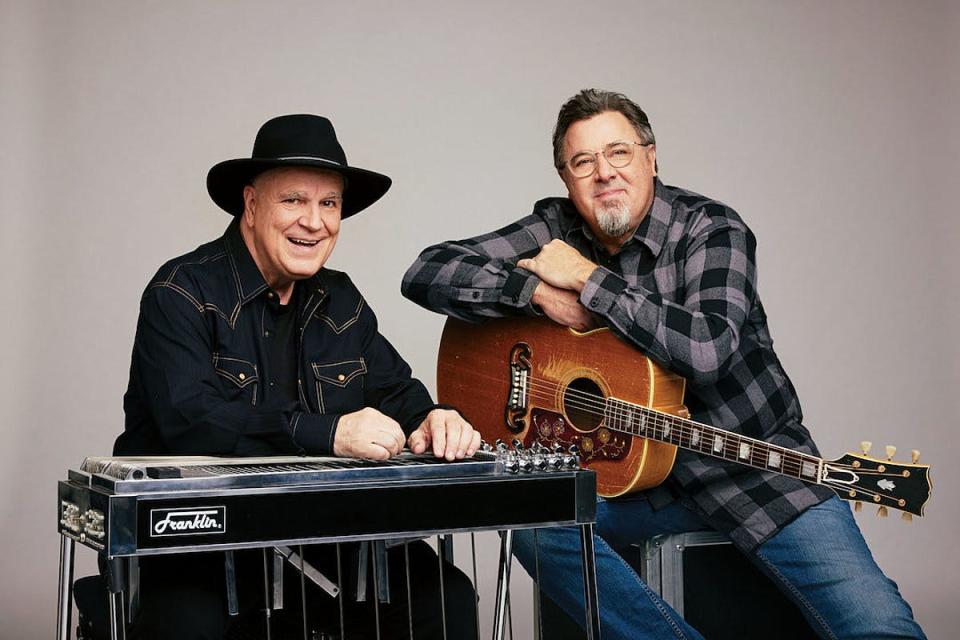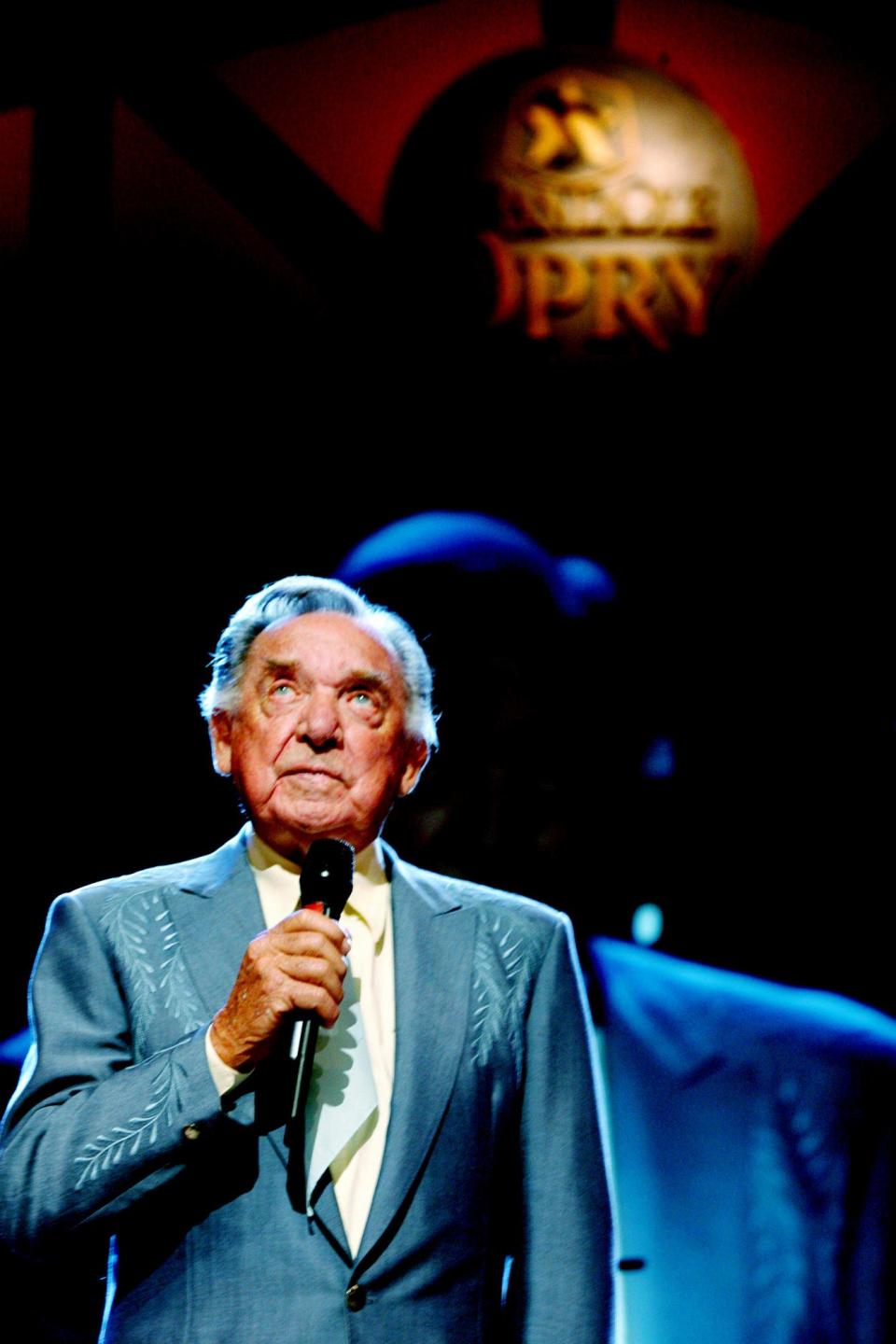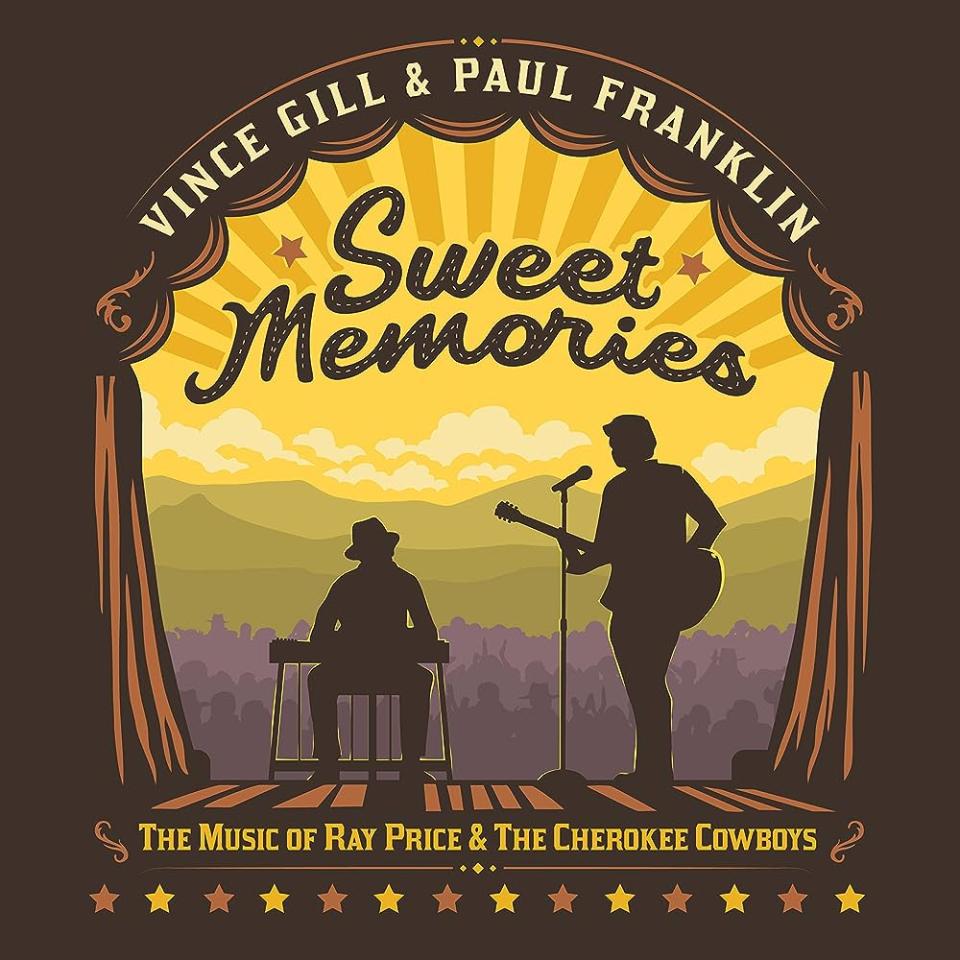Ray Price's country crooning legacy honored on new Vince Gill, Paul Franklin album
Vince Gill is a 66-year-old Country Music Hall of Famer and Grand Ole Opry member who currently tours as a member of The Eagles. Paul Franklin, aged three years Gill's senior and a peerless steel guitarist, has played on hits with five decades of country stars from Barbara Mandrell to Kane Brown.
Their shared musical curiosity has seen them collaborate on a series of projects over the last 30 years.
Foremost, they were successful as members of the legendary Nashville Western swing band The Time Jumpers. Then, in 2013 they collaborated on an album of polished covers of Merle Haggard and Buck Owens' Bakersfield-era favorites. Now, via MCA Nashville, they're releasing "Sweet Memories: The Music of Ray Price & The Cherokee Cowboys."

"Love. It comes from love," says Franklin about re-recording parts of Texas native and quintessential crooner Price's catalog. He's speaking to The Tennessean while seated alongside Gill in the latter's West Nashville home studio.
Price is a singer's singer whose baritone stylings flexed between folk-style ballads, yearning gospel tunes and pop material bearing similarities to American songbook favorites.
His work ushered country music into strengthening its earliest crossover traditions.

His influence was so profound that via his Cherokee Cowboy backing unit, names including Buddy Emmons, Willie Nelson, Roger Miller and Johnny Paycheck achieved their earliest renown.
Franklin refers to the album as plunging into "the deep iconic well of country's history" that "always yields an outlet to fulfill [our] desires and inspire future generations."

22-time Grammy-winning artist Gill refers to himself as a "musical chameleon." He gravitates to Price's material because it allows him to leave his own stamp on iconic songs like Price's take on traditional Irish classic "Danny Boy," Mel Tillis-written tracks like "Kissing Your Picture (Is So Cold)" and "One More Time," plus "Healing Hands of Time," a mid-60s Nelson-written song that has also been performed by Glen Campbell, Jessi Colter and Dottie West, among many.
"Finding a way to blend elements of Price's talents with my style allows me to respect his legacy beautifully," Gill says.
Franklin and Gill were aided in the project by an A-list set of musicians, including three-decade-long Nashville session guitarist Tom Bukovac, six-time Academy of Country Music award-winning fiddle player Stuart Duncan, recently passed ten-time Academy of Country Music Bass Player of the Year Michael Rhodes, electric guitarist Derek Wells and powerhouse soul vocalist Wendy Moten.
"Every single person who had a hand in this album is a chameleon just like [Paul and I] are," says Gill. "Plus, they know what not to do in honoring the spirit of an artist like Ray Price," he adds flatly.
In that vein, though, if recorded exactly to tradition, Ray Price songs like his 1956 breakout hit "Crazy Arms" may be roughly three minutes in length. A decade later, his single "For The Good Times" is only a minute longer. However, Gill and Franklin's take on "Danny Boy" tops out at just over five minutes.
Herein lies the modern wrinkle that showcases the creative impulses apparent in Gill and Franklin's explorations into Price's work.

Gill and Franklin's shared desire to highlight the inventive musicality of the album's players found the duo stretching takes on each of the album's tracks beyond the expected fade out to discover the moments where players' innovative mindsets seep into their interpretations of notes on a page.
"When we're listening to each other and discovering the freedom within the orchestration...we live for that call and response," Franklin says, finishing a sentence Gill starts.
The moment perfectly explains the magic inherent in the album.
"(Legendary record producer, songwriter, and music business executive) Fred Foster once told me that Roy Orbison's voice didn't open up until the 47th take. I always remember that," says Gill wryly.
Similarly, as a vocalist, Price's instrument had longevity to match its flexibility.
As Western swing lost favor and the Nashville sound began to take shape, he achieved No. 1 hits between 1956-1960. Before the genre's global, adult-contemporary aimed Countrypolitan boom, Price again topped the charts between 1970-1973.
Both eras are celebrated on "Sweet Memories."

"We copied nothing in making this album," Franklin continues. "These records may feel like Ray Price -- but even more, they reflect where Vince and I are, currently, as musicians having fun."
Gill pauses, then offers a thought when contemplating how "Sweet Memories" can help connect country music's past with its ever-broadening future.
"Hearkening back to classic, timelessly cool music teaches history to generations looking for the music to mentor them."
This article originally appeared on Nashville Tennessean: Ray Price's country crooning legacy honored on new Vince Gill, Paul Franklin album
